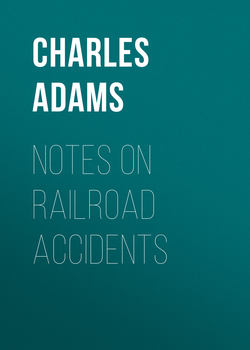Читать книгу Notes on Railroad Accidents - Adams Charles Francis - Страница 8
CHAPTER VII.
TELEGRAPHIC COLLISIONS
ОглавлениеAnd yet, even with the wires in active use, collisions will occasionally take place. They have sometimes, indeed, even been caused by the telegraph, so that railroad officials at two adjacent stations on the same road, having launched trains at each other beyond recall, have busied themselves while waiting for tidings of the inevitable collision in summoning medical assistance for those sure soon to be injured. In such cases, however, the mishap can almost invariably be traced to some defect in the system under which the telegraph is used; – such as a neglect to exact return messages to insure accuracy, or the delegating to inexperienced subordinates the work which can be properly performed only by a principal. This was singularly illustrated in a terrible collision which took place at Thorpe, between Norwich and Great Yarmouth, on the Great Eastern Railway in England, on the 10th of September, 1874. The line had in this place but a single track, and the mail train to Norwich, under the rule, had to wait at a station called Brundell until the arrival there of the evening express from Yarmouth, or until it received permission by the telegraph to proceed. On the evening of the disaster the express train was somewhat behind its time, and the inspector wrote a dispatch directing the mail to come forward without waiting for it. This dispatch he left in the telegraph office unsigned, while he went to attend to other matters. Just then the express train came along, and he at once allowed it to proceed. Hardly was it under way when the unsigned dispatch occurred to him, and the unfortunate man dashed to the telegraph office only to learn that the operator had forwarded it. Under the rules of the company no return message was required. A second dispatch was instantly sent to Brundell to stop the mail; the reply came back that the mail was gone. A collision was inevitable.
